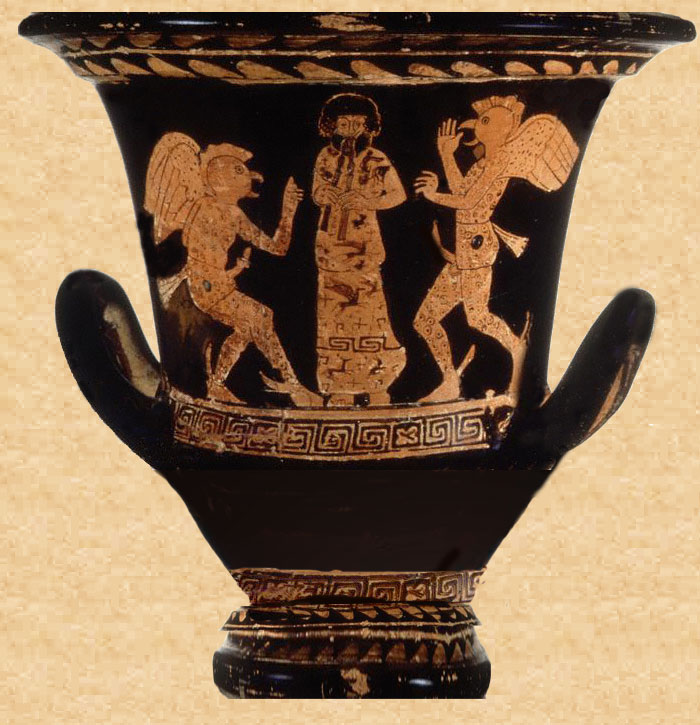|

THE ACHARNIANS: This work is the first play of Aristophanes that has survived. The first known antiwar comedy, he wrote this
play in response to the Peloponnesian War that was threatening destruction of Athens. This work is about an Athenian farmer
who wants peace with the Spartans and is therefore called a traitor. He must overcome society's misjudgment of him. Alhough
sounding serious, it apparently was very humorous.
THE KNIGHTS: This play poked fun at King Cleon, the leader who followed the famous Pericles. According to legend, Aristophanes
himself played Cleon and mockingly portrayed him as a drunkard. The play won a prize at the annual theater contest at the
great Theater of Dionysus.
THE CLOUDS: This play is famous for its satire on Socrates. The actual clouds were played by the chorus and are a metaphor
for the thoughts of the sophists. The clouds, like their thoughts, are not of the earth and are not always understood.
THE WASPS: This play was written in response the the hard times of Athens and its suffering from the Peloponnesian War.
This play was very similar to THE CLOUDS because it satirizes the Athenian commoner. In this case it was a satire of the average
Athenian's obsession to engage in legal arguments.
THE FROGS: This play was a satire of a favorite target of Aristophanes: the tragic playwright Euripides. This play was
written sometime after the death of Euripides and was about a journey to the underworld to bring him back to earth. Aristophanes
used to often target Euripides because they were competing playwrights. A reference to this play is in the Gilbert and Sullivan
operetta, "The Pirates of Penzance" when the Major General sings "I know the croaking chorus of The Frogs of
Aristophanes."
LYSISTRATA: This is an anti-war comedy that is through the eyes of the Athenian women. The women want their husbands to
stop fighting the Spartans and make an oath amongst themselves that none of them will have sexual intercourse with their husbands
until they stop the fight. This was seen as very humorous in Athens.
The above works are six of the remaining plays by Aristophanes. They are his most famous, although it is hard to know
if they were his best because so much of his work has been lost. These are seen as masterpieces by modern readers and these
plays are still performed today. The information about these plays was taken from "The Drama: Its History, Literature
and Influence on Civilization:" a series by Alfred Bates.
Click here to get a complete list of and to read the surviving plays by Aristophanes.
|

